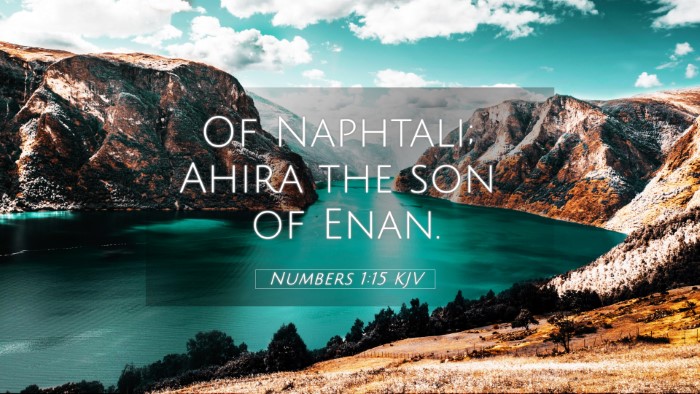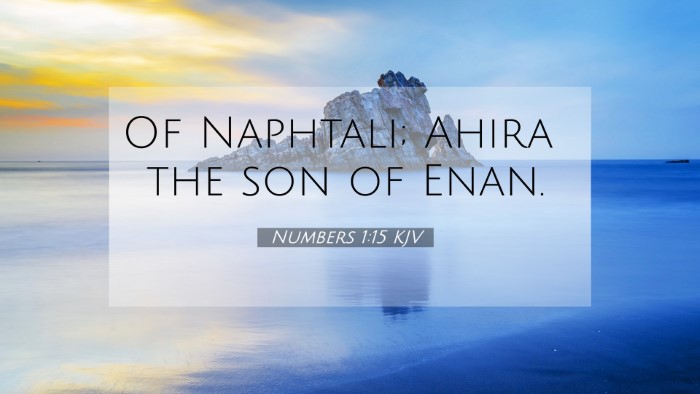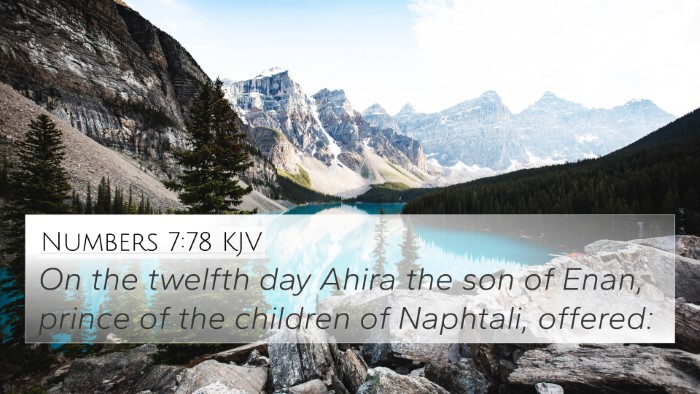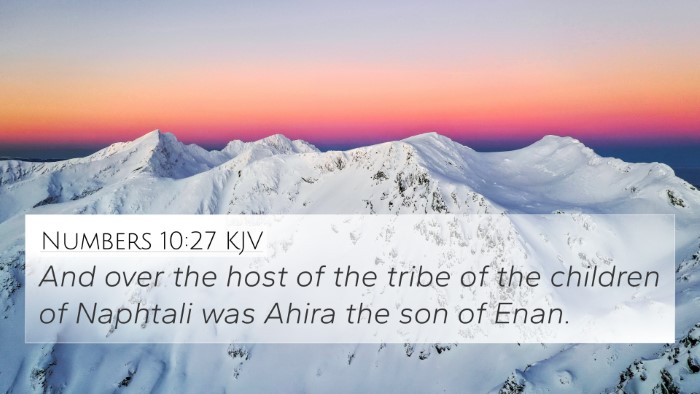Understanding Numbers 1:15
Verse: Numbers 1:15 - "And of the tribe of Gad; Eliasaph the son of Deuel."
The verse indicates the leadership of Eliasaph, son of Deuel, from the tribe of Gad during the Israelites' wilderness journey. This moment in biblical history reflects God's order in organizing His people for travel and worship. Understanding this verse requires examining the significance of tribal organization and its implications for Israel's identity and community structure.
Verse Context and Significance
In Numbers chapter 1, God commands Moses to take a census of the Israelite community, establishing a military structure and preparing for their journey to the Promised Land. Here are some key points to consider:
- The Israelites were counted not just for numbers, but for the arrangement of camp and military order.
- Eliasaph represents the tribe of Gad, highlighting the importance of each tribe's role and leadership.
- This organization reflects God’s providence and purpose for His people.
Commentary Insights
Matthew Henry: He emphasizes the providential display of God's order through the census. Each leader, like Eliasaph, signifies the acknowledgment of God's chosen leaders over the tribes. The structure provided a sense of belonging and responsibility among the Israelites.
Albert Barnes: Barnes points out the significance of Gad’s tribal leaders. He suggests that names in this genealogy serve to illustrate the continuity of God's promise and heritage through generations. The mention of Eliasaph reinforces the idea of divinely appointed leaders guiding their people.
Adam Clarke: Clarke delves deeper into the names and meanings of the respective fathers of the leaders. He notes that “Deuel” signifies "God is my judge," which connects to the overarching theme of divine guidance and justice seen throughout biblical narratives.
Bible Verse Cross-References
To enrich the understanding of Numbers 1:15, here are some cross-references that connect with the themes of leadership, order, and tribal significance:
- Genesis 49:19 - A prophetic declaration about the tribe of Gad.
- Exodus 18:21 - Establishes the importance of capable leaders among the people.
- Joshua 1:12-15 - Reflects Gad’s legacy in the conquest of Canaan.
- Deuteronomy 33:20-21 - Moses' blessing highlights Gad’s strength and positioning among the tribes.
- 1 Chronicles 5:11-22 - Chronicles the descendants and actions of the tribe of Gad in battle.
- Numbers 2:14 - Details the arrangement of the tribes, placing Gad strategically alongside other tribes.
- Matthew 2:1 - Spiritual connections to the tribes as descendants of Jacob and their roles in God’s plan.
Thematic Connections
The verse speaks to larger themes found in the Bible:
- Order and Organization: God's design for Israel exemplifying divine authority.
- Leadership: The roles of tribal leaders paralleling the leadership seen in the church today.
- Divine Providence: God's hand over Israel’s journey echoes through various scriptures.
- Tribal Identity: Reflects on the continued significance of lineage and heritage throughout the scriptures.
Conclusion
Numbers 1:15 serves as more than a simple mention of a leader; it encapsulates a moment of divine order, purpose, and structure for the Israelites as they began their journey towards the Promised Land. The insights from respected commentaries reveal the depth of significance behind the genealogies and tribal leadership, encouraging readers to explore connections across the scriptures.
Whether engaging in personal study or sermon preparation, understanding cross-referenced themes enhances our grasp of God's redemptive narrative. Exploring connections between Old and New Testament scriptures enriches the study of God’s Word, revealing the underlying unity and purpose of the biblical text.





